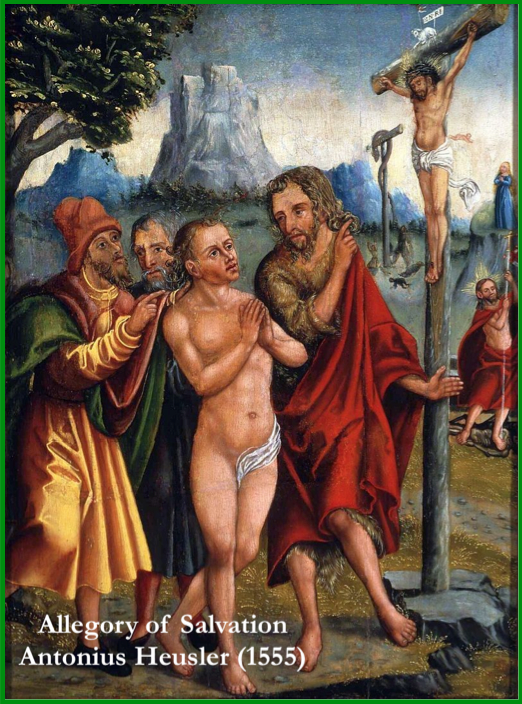Proclaiming the gospel of salvation
Letter to the Editor – Proclaiming the gospel of salvation
 Vivienne Hayward has been a parishioner at Christ Church Cathedral Darwin, in Australia’s Northern Territory, since 1982. Brought up in England, she worked as an English teacher and curriculum consultant in England, Papua New Guinea, Kiribati, Western Samoa, Tuvalu and the Northern Territory before ‘retiring’ in 2000.
Vivienne Hayward has been a parishioner at Christ Church Cathedral Darwin, in Australia’s Northern Territory, since 1982. Brought up in England, she worked as an English teacher and curriculum consultant in England, Papua New Guinea, Kiribati, Western Samoa, Tuvalu and the Northern Territory before ‘retiring’ in 2000.
Dear Editor,
As a cradle Anglican and a lay woman I strongly affirm Canon Hayley Matthews’ post Towards a Radical Theology of Lay Ministry[i] in which she describes ‘disciples mak[ing] disciples, through service to their communities, exemplary work ethics, pastoral care, lunchtime conversations about where we went last weekend, seasons of invitation and kindly cards of condolence—nothing ground breaking at all, in fact, just the gentle lapping of a love that will not let us go.’ ‘This is the essence of Lay Ministry,’ she says, ‘to bring the Gospel to wherever we are … by being the Good News wherever we are placed.’
As a teacher I also strongly affirm that ‘it is vitally important to develop a solid foundation for our faith internally if we are to express it externally, but equally important that we are then disciples with a confident grasp of the Gospel. Consequently, we can have those awkward conversations over the water cooler about why someone’s parent is suffering so as their life nears its end, or how God can let their colleague’s child succumb to cancer.’
No Anglican that I know would dispute this. The question is, though, ‘to what end?’ about which there is certainly no consensus. Central to this difference of understanding is the meaning of ‘salvation’. Many Christians believe that achieving ‘salvation’ means having life with God after death for individuals and that nobody who does not believe in God can have life with God after death. Their ministry therefore focuses on the need to convert non-believers so that they too can be ‘saved’ and to nurture them: the first two goals of the five marks of mission of the Anglican Communion[ii]:
- to proclaim the Good News of the Kingdom
- to teach, baptize and nurture new believers.
Others believe that achieving ‘salvation’ means bringing to fullness God’s will, fully revealed in Christ, that justice and peace and reconciliation should ultimately prevail in God’s world. Their ministry therefore focuses also on the three other marks of mission:
- to respond to human need by loving service
- to seek to transform unjust structures of society
- to strive to safeguard the integrity of creation and sustain and renew the life of the earth.
The question of whether ‘salvation’ is (a) concerned primarily with individuals’ life after death, or (b) primarily or equally concerned with justice, reconciliation and fullness of life for all on earth is central. Surely, it can only be judged by the consensus of scripture? You can justify any belief from a selective reference to scripture. The concept of ‘the consensus of scripture’, however, means that a comprehensive exegesis of a concept in scripture will reveal scripture’s understanding of it. I respectfully suggest that the concept that ‘salvation’ is concerned primarily with individuals’ life after death does not meet the consensus of scripture in that, unlike the Bible, (i) it addresses only ‘life after death’ and (ii) it addresses the salvation only of individuals.
What does the Bible say about salvation as life with God after death and salvation as fullness of life for all on earth? The Old Testament is famously ambiguous about whether there is life after death. Ecclesiastes in the second half of the third century BCE (9: 5-6) says ‘For what happens to the children of man and what happens to the beasts is the same; as one dies, so dies the other. They all have the same breath, and man has no advantage over the beasts, for all is vanity. All go to one place. All are from the dust, and to dust all return.’ The psalmist, Psalm 17: 15, says, As for me, I shall behold your face in righteousness; when I awake, I shall be satisfied with your likeness. But Psalm 115 says, ‘The dead do not praise the Lord, nor do any who go down into silence.’ And Psalm 146: 4 avers ‘When his breath departs, he returns to the earth; on that very day his plans perish.’ Proverbs 14: 12 laments that ‘when his breath departs, he returns to the earth; on that very day his plans perish.’ According to the website ‘My Jewish Learning[iii] ‘most Jewish ideas about the afterlife developed in post-biblical times.
The New Testament, of course, consistently affirms that there is life after death, though its meaning is complex. The overwhelming concept of ‘salvation’ in the New Testament, as in the Old, however, is that salvation is God’s intended purpose for this world.
Who needs salvation; what does salvation consist of? In the Old Testament those who need salvation are people who are threatened or oppressed, and their salvation consists in their being delivered from danger and tyranny, or rescued from imminent peril. Only God is so strong that his own action obtains salvation (meaning victory, security, freedom). Everyone else including the king must rely on someone stronger than himself (i.e. God) for salvation. In Second Isaiah[iv] salvation is very closely linked with the prophets’ idea of the righteousness of God. The mighty work of God, in which his righteousness is shown, is the work of saving the humble, the poor and the dispirited. And the last of the Servant Songs (Isaiah 53) suggests that this saving work can be carried out only through suffering. The whole Biblical history of Israel is the history of God’s saving activity in the corporate life of the people.
In the century or so before Christ the Jewish people came to despair of salvation coming to them in their own times because their own times seemed to them to be too evil to be redeemed and they began to look for a future day when God would intervene, the good would be freed from oppression and the evil would be utterly destroyed. But the gospels assert that salvation is possible in actual historical time. Matthew says that Christ’s ministry is ‘to save people from their sins’ (Matthew 1: 21) but the idea that this means to ‘save them from God’s punishment for their sins’ is not stated. Luke says that Christ’s ministry is ‘to seek and save those who are lost’ (Luke 19:10). Nearly a third of the New Testament references to salvation refer to it as delivering people from specific ills—captivity, disease, devil possession—terrors or physical death. Salvation is also referred to as God’s free gift, the transition from darkness to light, from alienation to a shared citizenship, from guilt to pardon, from slavery to freedom, from fear of hostile powers to liberty and assurance.
What does the Bible say about whether God’s will for ‘salvation’ is directed towards individuals or towards the world? Cruden’s complete concordance to the Bible[v] first published in 1737—and what a story that is—lists well over a hundred references to the salvation that is God’s gift to communities in the world, and none to individuals, and about fifty from individuals thanking God for their salvation. These are not mutually exclusive, of course, individuals being members of communities.
We all share the responsibility for implementing God’s loving will as revealed in the person, words and work of Christ for God’s world now and in the future. May the Holy Spirit guide us as we work together to discern to what this is calling us in 2023.
Vivienne Hayward
Epiphany 2023
[i] (Advent 2022 https://anglicanism.org/towards-a-radical-theology-of-lay-ministry )
[ii] https://www.anglicancommunion.org/mission/marks-of-mission.aspx
[iii] https://www.myjewishlearning.com/article/life-after-death/





